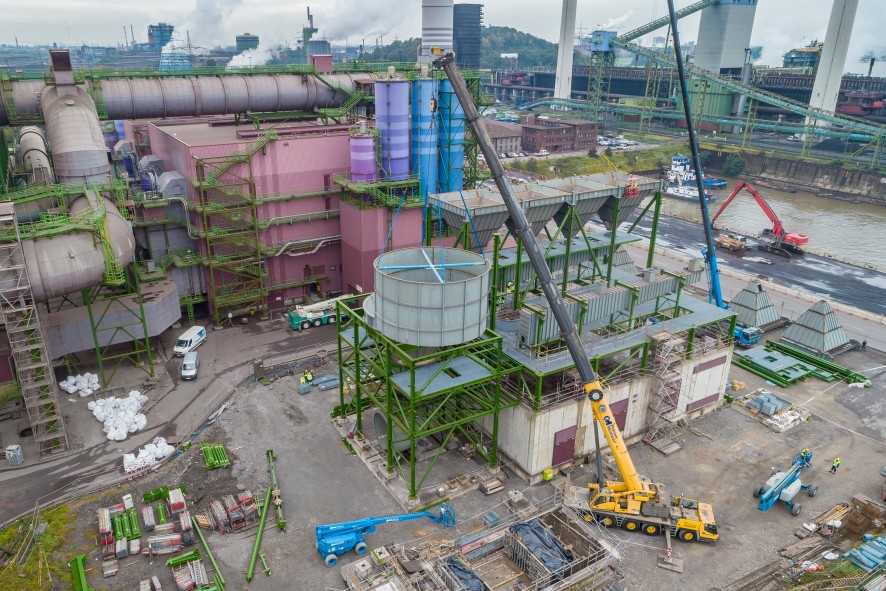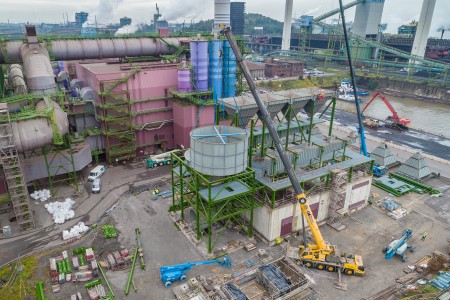Daily press, 2019-10-11, 09:10 am
Third fabric filter in Duisburg taking shape

Record temperatures, the Greta effect, CO2 tax – climate change is dominating the headlines and putting other environmental issues in the shade. But there are other substances beside CO2 that have an impact on the environment. These include particulates, which are produced among other things by sinter plants during steel production. That’s why thyssenkrupp Steel has invested a total of around €100 million in a fabric filter project at its Duisburg site to clean the air from the sinter plant. The last of three fabric filters is scheduled to go into operation in spring 2020. In the course of the project another section of the filter has now been moved into position: with a weight of 17 tons, it was no easy task for the two large 80- and 220-ton cranes used for the job.
World’s biggest and most effective fabric filter
In the “sintering” process iron ore is mixed with coke and other materials such as lime and then heated to around 1,200 degrees to fuse the materials together. To burn the coke, air is sucked through the mixture by huge fans. The creation of dust is unavoidable. Electrostatic precipitators usually collect most of this dust, but thyssenkrupp is setting new standards in air cleaning with its large fabric filters and collecting even the smallest dust particles.
The sinter plant in the north of Duisburg consists of three belts. A fabric filter for the smallest belt has been in operation since 2011. The filter unit on the largest of the three belts was commissioned in 2017. Now it’s time for belt number three. “The fabric filter system in Duisburg is amongst the biggest and most effective of its kind in the world,” says project manager Tibor Hänsel. “One of our biggest ever projects for clean air will finally be successfully completed in a few months’ time.”
Below statutory limits
“The investments are paying off. Our fabric filters signify a big step toward improving air quality,” says Andreas Theuer, Head of Environmental & Climate Protection at thyssenkrupp Steel. Particulate emissions are below statutory limits. “We capture 99.9% of dust emissions,” says Theuer. This significant improvement in air quality around the plant is also an important contribution to the environment in the Ruhr region and a clear commitment to the Duisburg location.




